Introduction
Germany, with its strong economy and central location in Europe, has played a pivotal role in shaping the process of European integration. Since the aftermath of World War II, Germany has been at the forefront of efforts to foster unity and cooperation among European nations. In this article, we will explore Germany’s multifaceted role in European integration and the economic implications it holds for the continent and the broader international community.
Germany, with its robust economy and strategic central location in Europe, has undeniably played a pivotal role in shaping the process of European integration. Since the tumultuous aftermath of World War II, Germany has stood at the forefront of efforts to foster unity and cooperation among European nations. This commitment to a united Europe has profound implications, not just for the continent but also for the broader international community.
One of the cornerstones of Germany’s role in European integration is its unwavering commitment to reconciliation and peace. In the wake of World War II, Germany embarked on a remarkable journey of rebuilding, both economically and diplomatically. The country recognized that lasting peace could only be achieved through cooperation and integration. This led to the formation of the European Coal and Steel Community in 1951, a precursor to the European Union (EU). Germany’s commitment to this process was instrumental in laying the foundation for the peaceful and prosperous Europe we see today.
Moreover, Germany’s economic strength has been a driving force behind European integration. As the largest economy in Europe, Germany has played a key role in shaping the Eurozone and the euro currency. The stability and credibility of the euro as a global currency largely depend on Germany’s fiscal responsibility and commitment to a strong European Monetary Union.
Germany’s leadership within the EU extends to various policy areas, from environmental sustainability and climate action to digital innovation and trade agreements. The country’s diplomatic influence is felt not only within the EU but also in its relations with international partners, such as the United States, Russia, and China.
Furthermore, Germany’s commitment to the European project has implications for trade and economic cooperation worldwide. The EU, with Germany as a driving force, is one of the largest trading blocs globally. As such, Germany’s role in promoting open markets, fair trade, and regulatory alignment has a far-reaching impact on international trade relations.
In conclusion, Germany’s multifaceted role in European integration goes beyond its economic strength and geographic location. It represents a commitment to peace, reconciliation, and the shared values of democracy and cooperation. As we explore Germany’s influence in this article, we gain insights into how this commitment continues to shape Europe and its relationships with the wider international community, highlighting the importance of unity and collaboration in a complex and interconnected world.
Additionally, you can find further information on this topic by visiting this page: Declassified: A short history of NATO – NATO
After World War II, Germany emerged as a divided nation, with East and West Germany following distinct political and economic paths. The fall of the Berlin Wall in 1989 and the subsequent reunification of Germany marked a turning point. The newly reunified Germany sought to overcome its historical baggage and actively contribute to a united Europe.
After World War II, Germany emerged as a divided nation, with East and West Germany following distinct political and economic paths. The fall of the Berlin Wall in 1989 and the subsequent reunification of Germany marked a turning point in not only German history but also European and global affairs. The reunification process was not only about merging two economies and societies but also about reshaping Germany’s role on the international stage.
Economic Reunification: The reunification process brought with it significant economic challenges. East Germany’s economy was in dire straits, and the integration of the two vastly different systems required substantial investment. West Germany’s strong economy played a crucial role in stabilizing and modernizing the newly unified nation.
Political Transformation: The reunification was not just an economic endeavor but a political one as well. The process involved the extension of democratic governance and the establishment of a unified legal framework. This represented a profound shift toward democracy and rule of law in the eastern part of the country.
European Integration: Germany’s reunification coincided with a period of increasing European integration. The country saw its role within the European Union (EU) as essential for maintaining peace and stability in Europe. It actively supported and contributed to the deepening of the EU, promoting economic cooperation, and striving for political unity.
Peaceful End of the Cold War: Germany’s reunification symbolized the peaceful end of the Cold War. The fact that the reunification process was achieved without violence or conflict was seen as a testament to diplomacy and dialogue, setting an example for peaceful conflict resolution on the global stage.
A New Role in Global Affairs: As a reunified nation, Germany sought to redefine its role in international politics. It embraced a commitment to multilateralism, diplomacy, and conflict resolution through peaceful means. Germany’s participation in international organizations, such as the United Nations, became more active and influential.
Responsibility and Reconciliation: Germany faced its historical baggage head-on, acknowledging the atrocities of World War II and the Holocaust. This commitment to historical responsibility and reconciliation was a significant step in Germany’s journey toward becoming a responsible global actor.
Humanitarian Efforts: Germany increased its involvement in humanitarian efforts and international development. It became a leading contributor to humanitarian aid and development projects, particularly in conflict-affected regions and countries in need.
Global Environmental Leadership: Germany’s commitment to sustainability and environmental protection became a hallmark of its foreign policy. It championed renewable energy, climate action, and environmental conservation, solidifying its position as a leader in global environmental policies.
In conclusion, Germany’s reunification was not just a geographical event but a transformative process that reshaped the nation’s identity and role in the world. It marked a commitment to democracy, diplomacy, and responsibility, and it positioned Germany as a key player in shaping the course of European and global affairs in the post-Cold War era.
To expand your knowledge on this subject, make sure to read on at this location: History of the EU, EU pioneers | European Union

Germany’s economic resurgence has been nothing short of remarkable. Today, it boasts the largest economy in Europe and the fourth-largest globally. Its commitment to economic stability, innovation, and a robust industrial base has been instrumental in driving the European integration process.
Germany’s economic resurgence over the decades stands as a testament to its resilience, vision, and strategic economic policies. Today, it not only boasts the largest economy in Europe but also ranks as the fourth-largest globally, wielding significant influence on the world stage. Its steadfast commitment to economic stability, innovation, and maintaining a robust industrial base has been instrumental in driving not only its own prosperity but also the broader European integration process.
Economic Stability: Germany’s adherence to fiscal discipline and prudent economic policies has paved the way for remarkable stability. Even amid global economic challenges, Germany’s economy has weathered storms, providing a sense of security for its citizens and contributing to stability in the Eurozone.
Innovation Powerhouse: The country’s dedication to innovation has positioned it as a global leader in technology and industrial advancement. Germany’s innovation ecosystem, characterized by strong investments in research and development, encourages entrepreneurship, and fosters a culture of continuous improvement. This commitment to innovation has helped drive not only economic growth but also global technological progress.
Robust Industrial Base: Germany’s industrial sector, including automotive, manufacturing, and machinery, is renowned for its precision and quality. This robust industrial base generates exports that are in high demand worldwide, contributing significantly to the country’s economic prosperity and international influence.
European Integration: Germany’s economic strength has played a pivotal role in advancing European integration. As the largest economy in the European Union, Germany provides vital financial contributions and leadership. Its commitment to the principles of the EU, including the free movement of goods, capital, services, and people, has fostered economic interconnectedness and political cooperation in the region.
Role in the Eurozone: Germany’s role in the Eurozone is central to the stability of the single currency. Its economic resilience and willingness to support struggling member states during financial crises have been crucial in preserving the integrity of the euro and ensuring that the currency remains a symbol of European unity.
Job Creation and Quality of Life: Germany’s economic success has translated into a high standard of living and low unemployment rates. Its ability to generate jobs and maintain social welfare programs underscores the country’s commitment to the well-being of its citizens.
Global Diplomacy and Influence: Germany’s economic might is not limited to its borders. It plays a significant role in shaping global economic policies and diplomatic initiatives. As a member of international organizations like the G7 and G20, Germany contributes to discussions on trade, climate change, and global security.
Sustainable Practices: Germany’s economic resurgence is also characterized by its commitment to sustainability. The country is at the forefront of green technologies and environmental initiatives, setting an example for responsible economic development in the 21st century.
In conclusion, Germany’s remarkable economic resurgence has far-reaching implications that extend beyond its national borders. Its dedication to stability, innovation, and a robust industrial base has not only led to its own prosperity but also played a crucial role in driving the European integration process. Germany’s influence on the global stage as an economic powerhouse underscores its pivotal role in shaping the future of not only Europe but also the world’s economic landscape.
To expand your knowledge on this subject, make sure to read on at this location: The territorial impact of COVID-19: Managing the crisis across levels …

Germany’s role in the creation of the Eurozone, with the euro as its common currency, cannot be overstated. The adoption of the euro by multiple European countries has deepened economic integration, eliminated currency fluctuations, and promoted trade within the Eurozone.
Germany’s role in the creation of the Eurozone, with the euro as its common currency, cannot be overstated. The adoption of the euro by multiple European countries has deepened economic integration, eliminated currency fluctuations, and promoted trade within the Eurozone, marking a significant milestone in the journey toward European unity and stability.
One of the most remarkable achievements of the Eurozone has been the elimination of currency fluctuations among its member states. Before the euro’s introduction, countries in Europe had their own individual currencies, each subject to its own economic pressures and market forces. This often resulted in unpredictable exchange rate fluctuations, which could disrupt trade, investment, and economic planning. With the euro as a common currency, these fluctuations disappeared, creating a more stable and predictable environment for businesses and consumers alike.
The Eurozone’s economic integration goes beyond currency stability. It has fostered a sense of unity and interdependence among member countries. This unity is reflected in the ease of cross-border trade and investment, as well as in the freedom of movement for goods, services, and people within the Eurozone. As a result, businesses can access a larger and more diverse market, leading to increased opportunities for growth and prosperity.
Moreover, the euro has become a symbol of trust and credibility in international financial markets. It is considered one of the world’s major reserve currencies, alongside the US dollar and the Japanese yen. This status not only enhances the Eurozone’s economic influence but also provides its member states with more favorable borrowing terms, reducing the cost of financing public debt.
Germany’s pivotal role in the Eurozone extends to its strong and stable economy. As one of the largest economies in the Eurozone, Germany’s fiscal discipline and economic strength have contributed to the stability of the euro. Its commitment to a balanced budget and sound financial practices has set an example for other member states, promoting fiscal responsibility within the Eurozone.
However, it’s important to note that the Eurozone has also faced challenges, such as managing economic disparities among member states and coordinating monetary policy effectively. Nevertheless, the euro remains a symbol of European unity and determination to create a more integrated and prosperous continent.
In conclusion, Germany’s role in the creation of the Eurozone and the adoption of the euro has had profound implications for European and global economics. The euro has brought stability, economic integration, and a sense of unity to the Eurozone, showcasing the power of collaborative efforts in shaping a more prosperous and interconnected Europe. As the Eurozone continues to evolve and address its challenges, the role of the euro as a symbol of European unity and stability remains as relevant as ever.
Additionally, you can find further information on this topic by visiting this page: Europe’s Response to the Belt and Road Initiative | German …
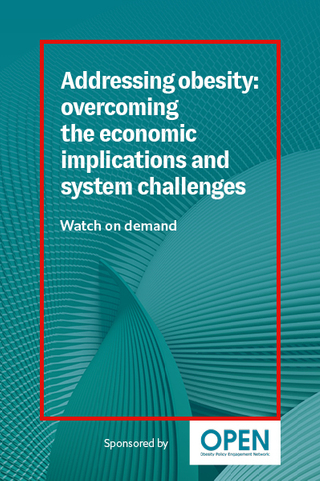
Germany is a key player in the EU, a political and economic union of 27 European nations. As the EU’s most populous member and a major contributor to its budget, Germany wields significant influence in shaping EU policies, including those related to trade, finance, and foreign affairs.
Germany’s pivotal role within the European Union (EU) extends beyond its population size and financial contributions; it encompasses a multifaceted influence that reverberates across the entire union and even the global stage. Here are some additional dimensions to Germany’s influence within the EU:
Stability and Integration: Germany’s economic strength serves as a stabilizing force within the EU. Its commitment to the eurozone and adherence to fiscal responsibility during crises, such as the Eurozone debt crisis, have played a critical role in maintaining the economic stability and integrity of the EU.
Leadership on Environmental Policies: Germany’s ambitious environmental policies, including its commitment to renewable energy and carbon reduction, have inspired and influenced EU-wide efforts to combat climate change. The country’s Energiewende (energy transition) initiative, which seeks to shift to a more sustainable energy mix, has set a benchmark for green policies within the EU.
Migration and Asylum Policies: Germany’s response to the 2015 refugee crisis significantly impacted EU-wide discussions on migration and asylum policies. Its willingness to accept a large number of refugees not only showcased humanitarian leadership but also catalyzed debates and policy changes across the EU.
EU Budget Negotiations: As one of the top contributors to the EU budget, Germany has a substantial say in shaping the budget allocation, priorities, and policies. Its influence is particularly evident in negotiations regarding the Multiannual Financial Framework (MFF), which determines the EU’s budget for a seven-year period.
European Defense Cooperation: Germany actively participates in efforts to strengthen European defense cooperation. Initiatives like the Permanent Structured Cooperation (PESCO) and the European Defense Fund aim to enhance the EU’s security and defense capabilities, with Germany playing a central role.
Foreign Policy Alignment: Germany’s foreign policy positions often align with EU priorities, making it a reliable partner within the union. Its diplomatic efforts, such as those related to the Iran nuclear deal and EU-Russia relations, have a bearing on EU foreign affairs strategies.
Role in Trade Agreements: Germany’s export-oriented economy positions it as a key advocate for EU trade agreements. Its influence in trade negotiations and its ability to garner support from other member states are instrumental in shaping the EU’s approach to international trade.
European Parliament Representation: German MEPs (Members of the European Parliament) hold a significant number of seats in the European Parliament. This representation allows Germany to actively participate in legislative processes and influence the direction of EU policies.
Cultural and Educational Exchange: Germany’s rich cultural heritage and commitment to education and research foster cultural and academic exchanges within the EU. Programs like Erasmus+ promote mobility and cooperation among European students and researchers.
Support for EU Enlargement: Germany plays a vital role in EU enlargement processes, helping aspiring member states align with EU standards and criteria. This enlargement policy extends the EU’s influence and values to neighboring regions.
In summary, Germany’s influence within the European Union extends across a spectrum of policy areas, reflecting its deep commitment to the European project. Its role as a leader, contributor, and mediator within the EU continues to shape the union’s policies and responses to global challenges, ultimately reinforcing the EU’s position as a significant player on the international stage.
To delve further into this matter, we encourage you to check out the additional resources provided here: The war in Ukraine and its implications for the EU | EEAS

Germany’s influence on European integration has significant economic implications for the continent:
Germany’s influence on European integration has significant economic implications for the continent, which reverberate across various sectors and dimensions of the European economy:
Market Expansion: As the largest economy in Europe, Germany serves as a linchpin for businesses seeking to access the European market. Its economic stability and consumer purchasing power make it an attractive destination for foreign investment and trade. Consequently, Germany’s pivotal role within the EU bolsters the single market’s appeal, promoting economic growth across the continent.
Investment and Job Creation: Germany’s position as an economic powerhouse means it often leads in attracting foreign direct investment (FDI). The influx of FDI contributes to job creation, not only within Germany but also in neighboring European countries. Multinational corporations frequently establish regional headquarters and production facilities in Germany, generating employment opportunities across the continent.
Strengthened Supply Chains: Germany’s strong manufacturing sector and emphasis on quality assurance have created a network of robust supply chains. European businesses benefit from these interconnected supply chains, fostering efficiency and competitiveness. This interconnectedness enhances the resilience of European industries, making them more capable of withstanding global economic shocks.
Monetary Policy Impact: Germany’s economic influence extends to the European Central Bank (ECB), where its weight in decisions regarding monetary policy, interest rates, and financial regulations significantly impacts the entire euro area. The stability-oriented approach of the ECB, influenced by Germany’s fiscal discipline, plays a crucial role in maintaining the euro’s credibility and promoting investor confidence.
Fiscal Discipline and Stability: Germany’s commitment to fiscal discipline sets a standard for responsible economic management within the EU. Its adherence to budgetary constraints and debt reduction goals encourages other member states to adopt similar practices, contributing to the overall financial stability of the Eurozone.
Trade Surpluses and Economic Disparities: Germany’s consistent trade surpluses within the EU can lead to economic disparities among member states. While Germany’s export-driven model thrives, some nations may struggle with trade deficits and reduced competitiveness. Addressing these imbalances remains a complex challenge in the context of European integration.
Innovation and Research: Germany’s investment in research and development (R&D) and innovation sets a high standard within the EU. Collaborative R&D projects and cross-border innovation initiatives are facilitated by Germany’s expertise, promoting technological advancements and competitiveness throughout the continent.
In conclusion, Germany’s influence on European integration extends far beyond political and economic spheres. It serves as a linchpin for regional growth, job creation, and economic stability. However, it also raises important questions about equity and imbalances within the EU, highlighting the need for ongoing dialogue and cooperation among member states to ensure that the benefits of European integration are shared more equitably across the continent.
Don’t stop here; you can continue your exploration by following this link for more details: History of the EU, EU pioneers | European Union
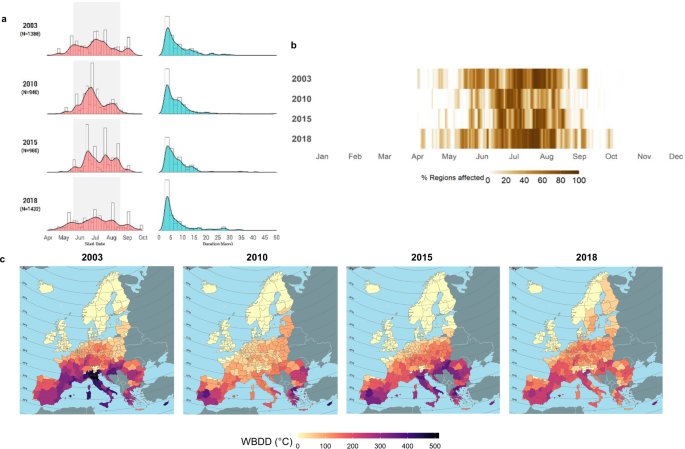
Germany’s commitment to fiscal discipline and sound economic policies has contributed to the stability of the Eurozone and the EU as a whole. Its strong economy acts as a stabilizing force during periods of economic turbulence.
Germany’s commitment to fiscal discipline and prudent economic policies has not only underpinned its own economic success but also played a pivotal role in maintaining the stability of the Eurozone and the broader European Union. This commitment to stability has proven particularly crucial during periods of economic turbulence.
One key element of Germany’s economic stability is its adherence to the principles of the Stability and Growth Pact within the Eurozone. By consistently keeping its budget deficits in check and maintaining a disciplined approach to public spending, Germany has set an example for other member countries. This discipline fosters confidence in the Euro as a reliable currency, attracting foreign investments and promoting economic growth across the Eurozone.
Germany’s strong economy serves as a stabilizing force in times of crisis. During the global financial downturn of 2008 and subsequent European debt crises, Germany’s economic resilience and willingness to provide financial assistance to struggling EU member states helped prevent deeper economic calamities. This support not only bolstered the Eurozone but also demonstrated Germany’s commitment to the EU’s overarching goal of solidarity and economic convergence.
Furthermore, Germany’s emphasis on vocational training and education has contributed to a highly skilled workforce, enhancing the competitiveness of not only German companies but also those throughout the EU. This commitment to human capital development aligns with the EU’s broader goals of fostering innovation and maintaining global competitiveness.
In recent years, Germany’s role in steering the EU towards sustainable economic recovery has been especially prominent. The European Recovery Plan, which includes substantial funding for green initiatives and digitalization, reflects Germany’s forward-looking approach to economic development. This plan not only aids member states in their post-pandemic recovery but also aligns with global imperatives, such as climate change mitigation and digital transformation.
In conclusion, Germany’s commitment to fiscal responsibility and its strong economic performance have far-reaching positive effects, stabilizing the Eurozone and reinforcing the European Union’s economic and political cohesion. Its proactive stance during crises and investment in the future underscore its dedication to the shared European project, ensuring its continued strength and relevance in a rapidly changing world.
Explore this link for a more extensive examination of the topic: The war in Ukraine and its implications for the EU | EEAS

Germany’s export-oriented economic model has been a driving force behind the growth of the European export market. Its world-class manufacturing sector and emphasis on quality have made “Made in Germany” synonymous with reliability and innovation.
Germany’s export-oriented economic model stands as a powerful engine propelling not only its own growth but also that of the broader European export market. At the heart of this model lies Germany’s world-class manufacturing sector, which has consistently set the bar for excellence in production processes and quality standards.
The “Made in Germany” label has, over the years, become more than just a mark of origin; it’s a symbol of trust and reliability for consumers worldwide. This reputation has been meticulously crafted through generations of meticulous craftsmanship and an unwavering commitment to quality. Whether it’s automobiles, machinery, electronics, or precision instruments, products bearing the “Made in Germany” stamp are associated with cutting-edge innovation and exceptional durability.
Germany’s emphasis on quality extends beyond its products; it’s deeply embedded in its work culture and educational system. The country’s vocational and technical education programs produce a highly skilled workforce that prides itself on precision and attention to detail. These skilled professionals contribute to the consistency and excellence that define German manufacturing.
Moreover, Germany’s export prowess is not solely about quantity but also about innovation. The nation continually invests in research and development, fostering a culture of innovation that keeps its products at the forefront of global markets. This innovation not only benefits German companies but also contributes to the advancement of technology and industry standards worldwide.
Germany’s export-oriented model not only spurs economic growth but also strengthens international partnerships. Its commitment to quality and innovation has made it a trusted collaborator for businesses and governments around the world. This collaborative spirit extends to European and global efforts to address pressing challenges, such as climate change, where Germany’s technological advancements play a vital role in finding sustainable solutions.
In conclusion, Germany’s export-oriented economic model is not just a source of national pride but a driving force behind European and global economic growth. Its manufacturing excellence and emphasis on quality set a high standard that inspires innovation and fosters international cooperation. As Germany continues to export its expertise and products to the world, it reinforces the idea that excellence and reliability are values that transcend borders and contribute to the betterment of industries and societies worldwide.
To delve further into this matter, we encourage you to check out the additional resources provided here: Economic Issues 1 — Growth in East Asia
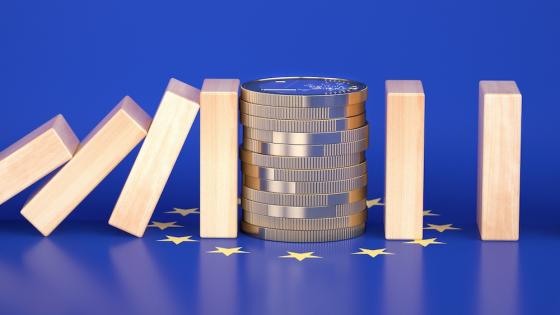
While Germany’s economic success has bolstered the Eurozone, it has also accentuated economic disparities among member states. Some countries have struggled to compete on the same footing, leading to debates over the equitable distribution of economic benefits and fiscal policies within the EU.
Germany’s economic success within the Eurozone, often hailed as a beacon of stability and prosperity, indeed carries profound implications for the broader European Union (EU). On one hand, Germany’s strong economic performance has contributed to the overall robustness of the Eurozone, helping to weather financial storms and maintain the strength of the Euro currency. This resilience has been invaluable, particularly during times of economic turbulence such as the global financial crisis of 2008 and the subsequent Eurozone debt crisis.
However, the flip side of this success story is the accentuation of economic disparities among EU member states. While Germany’s export-oriented model has driven its economic growth, some other countries within the Eurozone have found it challenging to compete on an equal footing. This divergence in economic performance has given rise to debates and discussions regarding the equitable distribution of economic benefits and the harmonization of fiscal policies within the EU.
One of the primary issues that has garnered attention is the notion of “two-speed Europe.” This concept suggests that while Germany and a few other economically strong EU members are accelerating, some countries are struggling to catch up, leading to an imbalanced European economic landscape. Critics argue that this imbalance could undermine the principles of solidarity and unity that the EU was founded upon.
The debate over fiscal policies and financial support mechanisms within the Eurozone has intensified as well. Discussions on topics like Eurobonds, which would entail shared debt issuance among Eurozone members, and the creation of a common budget for the Eurozone highlight the challenges of aligning economic interests and policies across diverse member states.
To address these disparities and foster greater economic convergence, EU institutions and member states have initiated various measures. These include the European Structural and Investment Funds, which aim to promote economic growth and reduce regional disparities, and the Stability and Growth Pact, which sets limits on budget deficits and public debt to ensure fiscal discipline.
In conclusion, while Germany’s economic prowess has undoubtedly contributed to the stability of the Eurozone, it has also magnified economic disparities and generated debates about the future of European economic integration. The challenge lies in finding a delicate balance between economic competitiveness and solidarity to ensure the EU’s continued success and cohesion in the face of evolving economic dynamics.
If you’d like to dive deeper into this subject, there’s more to discover on this page: Economic Issues 1 — Growth in East Asia

Germany’s role in European integration extends far beyond the continent’s borders:
Germany’s role in European integration extends far beyond the continent’s borders, encompassing a global influence that shapes political, economic, and cultural dynamics on a worldwide scale. This influence is the result of several key factors and strategies that have made Germany a prominent player in the international arena.
Economic Powerhouse: Germany’s robust economy, often referred to as the “engine of Europe,” wields significant influence on the global stage. Its position as the largest economy in Europe and one of the top economies globally empowers it to shape global economic policies, trade agreements, and financial stability. German companies are known for their global reach, making Germany an economic linchpin in the interconnected world economy.
Leadership in the European Union: As a founding member and one of the largest contributors to the European Union (EU), Germany plays a central role in the EU’s decision-making processes. Its influence within the EU ripples outward, affecting policies and partnerships with nations beyond Europe. Germany’s commitment to European unity fosters stability and cooperation in a region historically marred by conflict.
Diplomatic Engagement: Germany actively engages in diplomatic efforts around the world. Its commitment to multilateralism and diplomacy is evident through its involvement in international organizations such as the United Nations, NATO, and the G7. Germany’s diplomatic initiatives extend to addressing global challenges like climate change, conflict resolution, and humanitarian aid.
Cultural Exports: German culture, from literature and philosophy to music and cinema, has had a lasting impact globally. Influential figures like Goethe, Beethoven, and Bauhaus architects have left an indelible mark on the world’s cultural landscape. Germany’s promotion of its culture through institutions like the Goethe-Institut and cultural exchanges fosters mutual understanding and soft power.
Innovation and Technology: Germany’s reputation for engineering excellence and innovation extends beyond its borders. Its emphasis on research and development, particularly in fields like automotive engineering, renewable energy, and advanced manufacturing, has a ripple effect on global industries. Collaborations with international partners in research and technology transfer contribute to global progress.
Humanitarian Initiatives: Germany is known for its commitment to humanitarian efforts, including refugee resettlement, development aid, and disaster relief. These initiatives showcase Germany’s dedication to global stability and human rights, earning it respect and trust on the global stage.
In summary, Germany’s role in European integration is not confined to the continent; it reverberates globally. Its economic strength, diplomatic engagement, cultural exports, technological innovation, and humanitarian initiatives collectively position Germany as a nation with a profound influence that extends far beyond its borders, shaping the course of international affairs and fostering global cooperation.
You can also read more about this here: Beyond growth

Germany’s position as an economic powerhouse in Europe makes it a significant player in global trade. Its exports to countries outside the EU, particularly the United States and China, have a substantial impact on international commerce.
Germany’s economic prowess radiates far beyond Europe’s borders, positioning it as a formidable force in the global trade arena. The significance of its trade extends to key players like the United States and China, influencing the dynamics of international commerce in profound ways.
When we examine Germany’s exports to the United States, we uncover a mutually beneficial relationship. German automotive brands, renowned for their quality and precision, have carved out a significant share of the American market. Likewise, machinery, chemicals, and industrial equipment from Germany find their way into American factories and businesses, fueling innovation and economic growth. This symbiotic exchange not only strengthens economic ties but also underscores the importance of Germany as a strategic trading partner for the United States.
In the case of China, Germany’s trade relations represent a crucial facet of the global supply chain. China’s booming manufacturing sector relies on German machinery and industrial technology to maintain its competitive edge. Likewise, German companies tap into China’s vast consumer market, offering everything from luxury cars to high-tech gadgets. This interdependence highlights Germany’s role in supporting China’s rapid economic development while capitalizing on the opportunities presented by the world’s most populous nation.
Beyond individual trade partners, Germany’s global trade footprint is felt across various industries. Its commitment to quality and innovation enhances the competitiveness of products ranging from chemicals and pharmaceuticals to renewable energy technologies. German exports set industry standards, influencing global markets and inspiring others to raise their own quality benchmarks.
Moreover, Germany’s trade practices are marked by a commitment to environmental sustainability and responsible production, aligning with global efforts to address climate change and social responsibility. This emphasis on sustainability not only benefits the planet but also positions Germany as a leader in responsible global trade practices.
In essence, Germany’s economic might, characterized by its exports to countries like the United States and China, underscores its indispensable role in shaping the future of international commerce. Its impact ripples through industries, economies, and global initiatives, reaffirming its status as a prominent player in the global trade landscape.
Additionally, you can find further information on this topic by visiting this page: Declassified: A short history of NATO – NATO
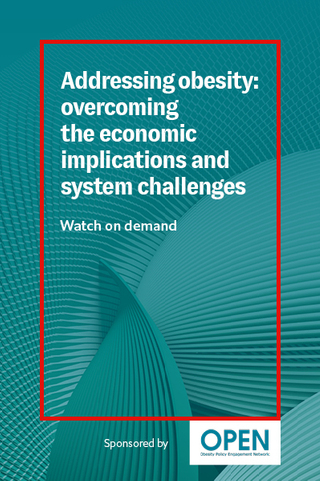
Germany’s leadership in the EU and its commitment to multilateralism have made it a key diplomatic partner in addressing global challenges, from climate change to international conflicts.
Germany’s position as a key diplomatic partner in addressing global challenges is underpinned by its strong leadership within the European Union (EU) and its unwavering commitment to multilateralism. This combination of influence and dedication has elevated Germany’s role on the international stage, enabling it to play a pivotal part in confronting a wide range of pressing global issues.
Within the EU, Germany’s leadership is particularly significant. As one of the largest and most economically robust members, Germany holds considerable sway in shaping EU policies and initiatives. Its diplomatic efforts, in collaboration with other EU nations, have played a crucial role in advancing the collective response to critical global challenges.
One of the foremost issues where Germany’s leadership shines is the fight against climate change. Germany’s consistent advocacy for stringent emissions reductions targets, renewable energy transitions, and sustainability initiatives has helped to propel the EU into a global leader in climate action. This unified front has not only influenced international climate agreements but has also inspired other nations to follow suit in their climate commitments.
Germany’s dedication to multilateralism extends far beyond climate change. It actively engages in diplomatic dialogues and international organizations to address a wide spectrum of global challenges. In matters of international conflicts and peacekeeping, Germany contributes significantly to peacekeeping missions and humanitarian efforts, displaying a steadfast commitment to maintaining global stability and security.
Furthermore, Germany’s leadership is evident in its support for international development and cooperation. The country is a leading contributor to development aid and humanitarian assistance programs, assisting vulnerable communities around the world. This commitment not only alleviates suffering but also fosters goodwill and cooperation among nations.
Germany’s approach to diplomacy is characterized by its commitment to dialogue and consensus-building. It values open and constructive discussions to find common ground on global issues, thereby promoting peaceful resolutions to conflicts and encouraging cooperation among nations with diverse interests.
In an increasingly complex and interconnected world, Germany’s diplomatic leadership is indispensable. Its influence within the EU and dedication to multilateralism enable it to be a driving force in addressing global challenges. Whether it’s climate change, international conflicts, or humanitarian crises, Germany’s active engagement serves as a model for how nations can work together to forge solutions and advance the common good in a world that demands collaborative action.
Looking for more insights? You’ll find them right here in our extended coverage: Declassified: A short history of NATO – NATO

Germany’s willingness to accept a large number of refugees during the 2015 migration crisis underscored its commitment to humanitarian principles. This action also had implications for European and international migration policies.
Germany’s willingness to accept a large number of refugees during the 2015 migration crisis was a defining moment that underscored its deep commitment to humanitarian principles. This bold stance not only had immediate implications but also left a lasting impact on European and international migration policies, triggering a multifaceted discourse.
In 2015, as the refugee crisis escalated, Germany opened its doors to hundreds of thousands of asylum seekers fleeing conflict and persecution in the Middle East, particularly Syria. This humanitarian gesture not only provided a safe haven for those in desperate need but also showcased Germany’s leadership in upholding international human rights conventions. It sent a powerful message about solidarity and shared responsibility within the European Union and the global community.
Germany’s decision to accept such a significant number of refugees had several noteworthy consequences:
European Solidarity: Germany’s actions spurred other European countries to reevaluate their refugee policies. While it led to a sense of unity in some quarters, it also exposed divisions within the EU regarding the distribution of refugees. The crisis highlighted the need for a more coordinated and equitable approach to refugee resettlement within the EU.
Domestic Challenges: The influx of refugees posed significant domestic challenges for Germany, including housing, integration, and social services. It prompted discussions on the need for comprehensive integration programs and reforms in immigration policies to ensure the successful inclusion of newcomers into German society.
Global Attention: Germany’s stance on refugees garnered international attention and acclaim. It raised awareness about the broader refugee crisis and influenced other countries to reassess their own policies towards displaced populations.
Policy Shifts: The 2015 crisis prompted discussions on revising asylum and immigration policies both within Germany and at the EU level. It led to changes in German immigration laws and contributed to policy shifts at the European level, with discussions on reinforcing external borders and improving asylum procedures.
Long-Term Commitment: Beyond the immediate crisis, Germany’s commitment to integrating refugees and providing support has continued. Programs for language acquisition, vocational training, and job placement have aimed at long-term integration and economic self-sufficiency.
In retrospect, Germany’s response to the 2015 migration crisis exemplified the country’s dedication to humanitarian values and its willingness to take a leadership role in addressing global challenges. While it posed significant challenges and complexities, it also stimulated important discussions and policy changes in Germany, Europe, and beyond, highlighting the interconnectedness of migration issues on the world stage.
To delve further into this matter, we encourage you to check out the additional resources provided here: Article: The EU-Turkey Deal, Five Years On: A Fray …
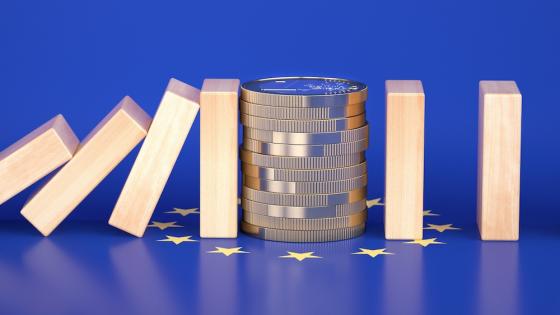
Conclusion
Germany’s role in European integration has profound economic implications for Europe and the wider world. Its leadership in fostering a united Europe, commitment to economic stability, and influence within the EU have been instrumental in shaping the continent’s economic landscape. As Europe faces new challenges and opportunities, Germany’s continued role in driving economic integration will remain a crucial factor in the continent’s future prosperity and global standing.
Germany’s role in European integration extends far beyond its borders, with profound economic implications that resonate both within Europe and across the wider world. Its leadership in fostering a united Europe, commitment to economic stability, and influence within the European Union (EU) have been instrumental in shaping the continent’s economic landscape. As Europe faces new challenges and opportunities, Germany’s continued role in driving economic integration will remain a crucial factor in the continent’s future prosperity and global standing.
Economic Powerhouse: Germany stands as one of the largest economies not only within Europe but also globally. Its economic stability, industrial prowess, and export-oriented model have made it a cornerstone of the European economy. As the largest contributor to the EU budget, Germany’s economic health is closely tied to the success of the European project.
Stability Amid Crisis: Throughout its history, Germany has demonstrated a remarkable ability to weather economic crises. Its robust fiscal policies, social safety nets, and emphasis on prudent economic management have been a source of stability during periods of financial turmoil, such as the Eurozone debt crisis and the global financial crisis.
Export-Oriented Growth: Germany’s emphasis on exports has contributed to its economic success and trade surplus. This export-driven model benefits not only Germany but also other EU countries through trade and investment opportunities. However, it has also led to debates about global trade imbalances and the need for rebalancing.
Commitment to the Euro: Germany’s commitment to the Euro as a common currency has been a cornerstone of European integration. Its strong economy and credibility have bolstered the Euro’s stability, making it a global reserve currency and enhancing economic cooperation within the Eurozone.
EU Leadership: Germany plays a central role in shaping EU policies, particularly those related to the single market, trade agreements, and financial regulations. Its diplomatic clout and commitment to European values contribute to the EU’s ability to navigate complex global challenges.
Investment in Research and Innovation: Germany’s emphasis on research and innovation drives technological advancement within Europe. Its investment in cutting-edge technologies, such as Industry 4.0 and clean energy, enhances the continent’s competitiveness on the global stage.
Global Trade Relations: Germany’s economic strength makes it a key player in global trade negotiations and international economic organizations. Its ability to negotiate and advocate for European interests on the world stage has a direct impact on trade agreements and economic partnerships worldwide.
Balancing Economic Interests: As Europe faces evolving economic challenges, including digital transformation, climate change, and demographic shifts, Germany’s role in balancing economic interests among EU member states becomes increasingly important. It must navigate diverse economic priorities to ensure that the benefits of integration are widely shared.
In conclusion, Germany’s role in European integration has profound and far-reaching economic implications that extend beyond the continent’s borders. Its economic leadership, stability, and commitment to a united Europe have been pivotal in shaping the region’s economic landscape and global influence. As Europe navigates the complexities of the 21st century, Germany’s continued dedication to economic integration and cooperation will remain a linchpin for the continent’s future prosperity and its standing on the world stage.
For a comprehensive look at this subject, we invite you to read more on this dedicated page: Economic Issues 1 — Growth in East Asia
More links
To delve further into this matter, we encourage you to check out the additional resources provided here: Root Causes of Conflicts in Africa Must Be Addressed beyond …
